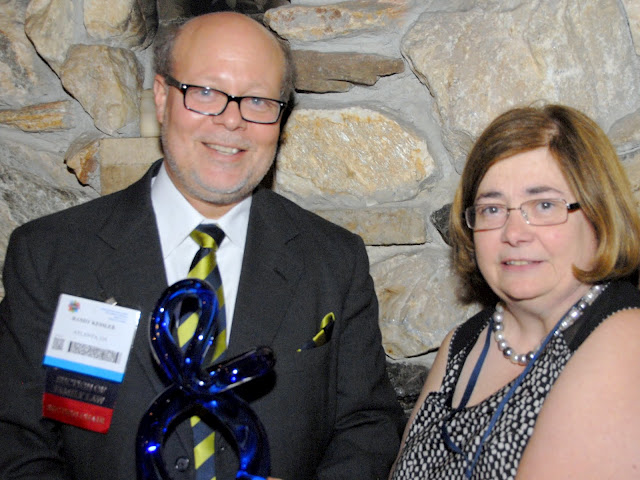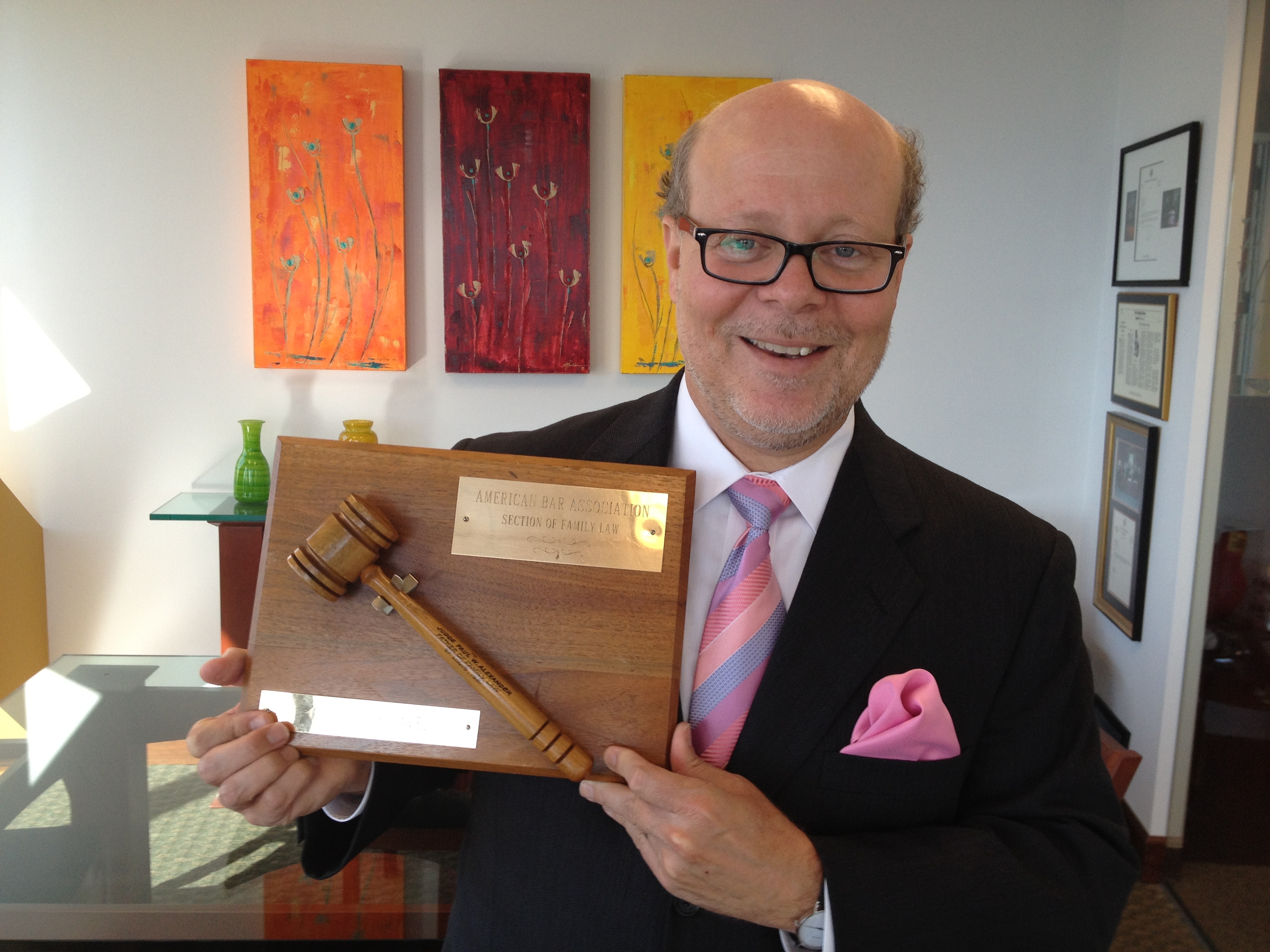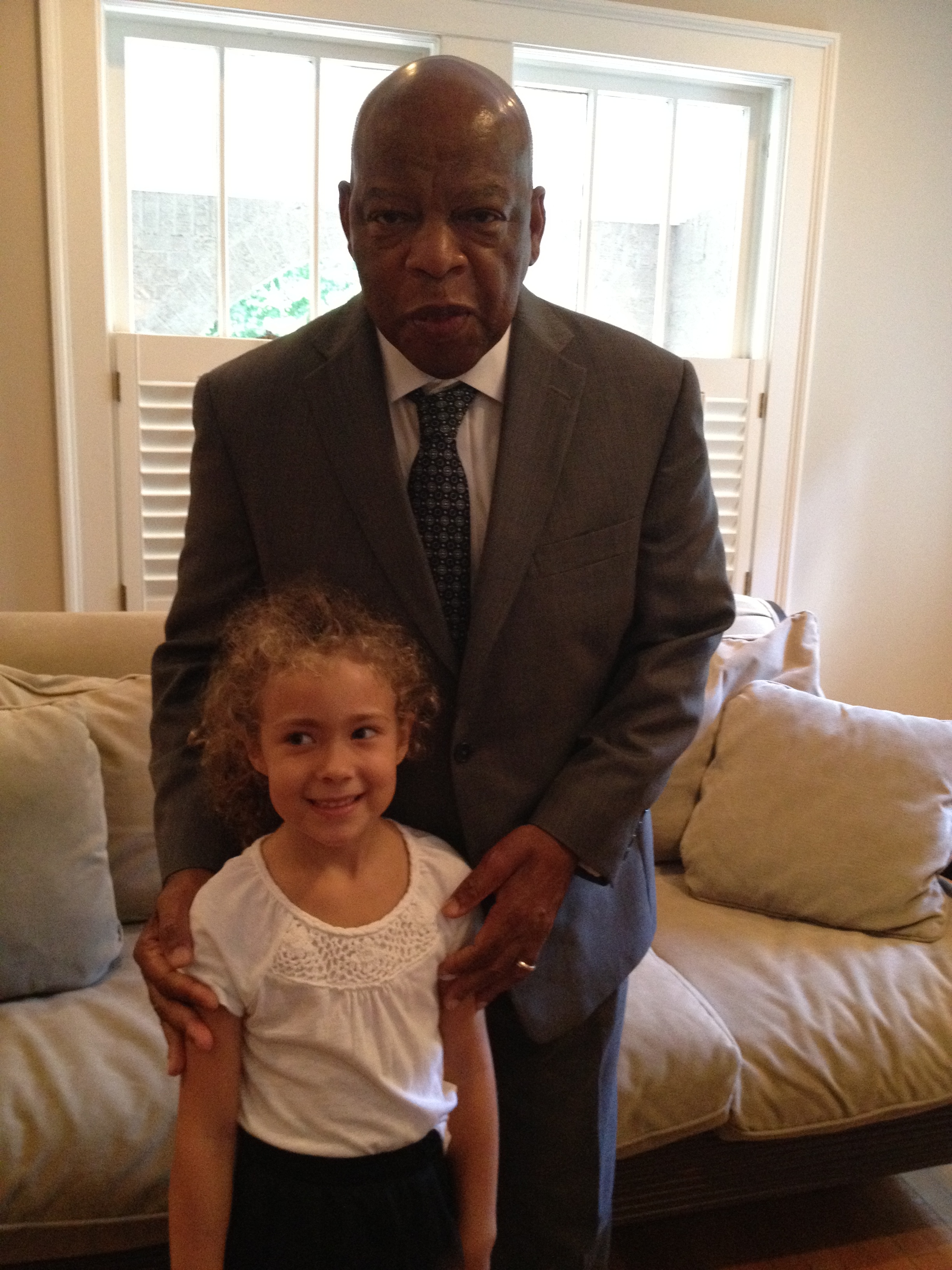 As written for my “Influencers” post:
As written for my “Influencers” post:
Once a year I travel to meet with about 20 of the finest family law attorneys in the country. This is that week. I always learn something and gain an optimism after each yearly meeting that lawyers can make a difference. We deeply explore systemic problems and ways to fix them. We discuss helping individual clients as well as how to assist the legislatures and the courts to better understand the needs of individuals embroiled in family law cases. But most importantly, the sometimes very depressing work we do on a day to day basis looks and feels much more positive when we realize we all struggle with the same dilemmas. How to convince a client that settlement is better than court. How to explain to a client that even though their spouse cheated, the children still love them both and want them to get along. How to ensure they are financially protected without spending all their savings on discovery and other legal procedures. These are dilemmas. But I know that my colleagues are good, decent people trying their best to help. This is refreshing and inspiring. I respect them and am honored to be able to join them. And I look forward once again this year to being inspired and educated. I owe it to my clients to learn as much as I can to help them. And learning from experts from around the country is one of the best ways to do that.
Bar Mitzvah year, 2013
2013, a future has arrived. Just the name of the year, 2013, still sounds to me like a science fiction title. While the number 13 has to many been a symbol of bad luck, it seems that 2013 is starting off right. 2012 (not 2013) was, per the Mayans, to be the end of the world and the fiscal cliff dilemma seems to have subsided. But whatever your superstitions or concerns may be, it really is a time and chance to move forward. 13 is a magical number. It is the year a Jewish child becomes an adult through a Bar Mitzvah. It is the first “teen” year. And it is a brand new year for all of us.
Despite the instability in the Middle East and many other troubles worldwide, we have still avoided a world war, even though after the first one, barely twenty years elapsed before a second one arose. We have found ways to work together, despite so many differences. And in my profession, that is the key, both for lawyers and litigants. People who sue each other obviously have differences. But even in litigation, we are all human and owe each other the basic respect and civility which makes us human beings. There will always be those who battle for every last inch. And when pushed, even the mildest mannered lawyer can return the favor. But as lawyers, as counselors, we must stay on task. Seek our clients goals, while advising them competently during the process. Help them decide which goals are unattainable, or will only come at too high a price. We must give them good, reliable advice that will help guide them to make good, informed decisions. Variables include not just the financial cost of litigation, but the cost in terms of lost time, damage to relationships with children and actual damage to children which expands the longer litigation lasts. Yes this is our duty and if done well, can help families and society.
I remain proud to be in a profession which has the ability to help in so many ways. If practiced well, the profession of law can and should benefit us all. Without laws, without civilization, we lose our unique characteristics that make us human. Might becomes right, and we become like any other creature on earth. Laws are valuable, perhaps invaluable, but the manner in which they are enforced, argued and used, is up to us. And it is this duty, (the duty to act civilly and ethically) which can make the law work for all of us.
 I have again been fortunate to have been invited to address the Hawaii State Bar Family Law Section as their keynote speaker this Friday. I have worked very hard on my 3 hour, yes 3 hour presentation. But this time it’s different. I will not be speaking about the rules of evidence, or recent caselaw. Rather, I will discuss how to practice with a passion. I am lucky to be passionate about what I do. The rewards are not immediate, but I know I am doing my best to help people, and any lawyer who practices family law should feel that way, IMHO (in my humble opinion) as the young texters say. This program will cover not only practicing with a passion, but how your passion can help your practice and your life. And how it can lead to better time management and in fact, the creation of time. If we can create time by how we practice, we can spend more time focusing on what’s important. Things like our family, our colleagues, and even the big picture of our cases, instead of drowning in the details. This idea is a work in progress for all of us, but I hope to help the lawyers who attend. I am nervous and excited. I hope I merit the invitation.
I have again been fortunate to have been invited to address the Hawaii State Bar Family Law Section as their keynote speaker this Friday. I have worked very hard on my 3 hour, yes 3 hour presentation. But this time it’s different. I will not be speaking about the rules of evidence, or recent caselaw. Rather, I will discuss how to practice with a passion. I am lucky to be passionate about what I do. The rewards are not immediate, but I know I am doing my best to help people, and any lawyer who practices family law should feel that way, IMHO (in my humble opinion) as the young texters say. This program will cover not only practicing with a passion, but how your passion can help your practice and your life. And how it can lead to better time management and in fact, the creation of time. If we can create time by how we practice, we can spend more time focusing on what’s important. Things like our family, our colleagues, and even the big picture of our cases, instead of drowning in the details. This idea is a work in progress for all of us, but I hope to help the lawyers who attend. I am nervous and excited. I hope I merit the invitation.
I am looking forward to this opportunity and already know that I have learned so much, just in thinking about what to say. Teaching is always a great learning experience.
 I recently “passed the gavel” to the new Family Law Section Chair, Maryann Foley of Alaska. It was a heartwarming ceremony and many of the leaders in family law were there. But perhaps more important than that ceremony, was our final Council meeting the day before. While it was the last one I will preside over, it was a meaningful one. We surveyed the status of our section’s efforts, including our great publications, CLE programs and other endeavors, but what was also nice, was that we reviewed and revised our Family Law Section’s Mission Statement. While the changes were not extreme, they did force us to again review our Mission Statement and to think about what we do and what we want to do and be, as a section. So with that, I say farewell as Chair, and leave you with this, the newly revised Mission Statement of the Family Law Section of the American Bar Association:
I recently “passed the gavel” to the new Family Law Section Chair, Maryann Foley of Alaska. It was a heartwarming ceremony and many of the leaders in family law were there. But perhaps more important than that ceremony, was our final Council meeting the day before. While it was the last one I will preside over, it was a meaningful one. We surveyed the status of our section’s efforts, including our great publications, CLE programs and other endeavors, but what was also nice, was that we reviewed and revised our Family Law Section’s Mission Statement. While the changes were not extreme, they did force us to again review our Mission Statement and to think about what we do and what we want to do and be, as a section. So with that, I say farewell as Chair, and leave you with this, the newly revised Mission Statement of the Family Law Section of the American Bar Association:
Mission/Goals of American Bar Association’s Family Law Section.
The mission statement of the Family Law Section follows:
The mission of the American Bar Association Family Law Section is to serve as the national leader in the field of Family Law. To accomplish its mission, the Council has adopted the following seven goals for the Section:
I. To improve the family law system.
II. To be the pre-eminent voice on family issues.
III. To serve our members.
IV. To improve public and professional understanding of family law issues.
V. To increase the diversity and participation of our membership.
VI. To educate the public about family law and the professionals involved in family law.
VII To improve professionalism of all participants in the administration of family law.
 I have been so fortunate to have been able to serve as Chair of the Family Law Section of the American Bar Association for the 2011-2012 term. I cannot believe the year is drawing to a close. To have been allowed to lead this section, has truly been an honor and the highlight of my legal career and bar service. About 15 years ago I served as Chair of the Family Law Section of the Atlanta Bar Association. I have served as Chair of the Standing Committee on Substance Abuse for the American Bar Association and as Chair of the Family Courts Committee of the Family Law Section of the ABA, as well as Chair of the Family Law Section of the Georgia Bar Association. This year has really been a culmination for me and I really know for sure now, that being a lawyer, and serving the bar and the community in ways beyond representing clients, is what makes ours a profession worth pursuing. I have been fortunate enough to meet lawyers and judges from across the world. And while there are many different personalities in our profession, like any other, there are so, so many people trying so hard to do good and to make the world a better place.
I have been so fortunate to have been able to serve as Chair of the Family Law Section of the American Bar Association for the 2011-2012 term. I cannot believe the year is drawing to a close. To have been allowed to lead this section, has truly been an honor and the highlight of my legal career and bar service. About 15 years ago I served as Chair of the Family Law Section of the Atlanta Bar Association. I have served as Chair of the Standing Committee on Substance Abuse for the American Bar Association and as Chair of the Family Courts Committee of the Family Law Section of the ABA, as well as Chair of the Family Law Section of the Georgia Bar Association. This year has really been a culmination for me and I really know for sure now, that being a lawyer, and serving the bar and the community in ways beyond representing clients, is what makes ours a profession worth pursuing. I have been fortunate enough to meet lawyers and judges from across the world. And while there are many different personalities in our profession, like any other, there are so, so many people trying so hard to do good and to make the world a better place.
 I recently attended an event for Congressman John Lewis. He explained how he has been getting in “good trouble” his whole life. What an inspiration he was and is. We should all get in “good trouble” and help make positive change in our world. For me, it is in my limited capacity as a family law attorney, but for all of us there is a way. My year has had it’s challenges just like any other year, but it has been quite an interesting one for Family Law. DOMA seems about ready to fall. Grandparent’s rights are evolving. International custody issues have been given more attention. We should all be helping ensure that these issues get the attention they deserve. Family Law attorneys can and should continue to help legislatures and courts understand the law and the ramifications of poorly drafted statutes or poorly interpreted laws. We should also help the public understand them. Knowledge is power and we should all be as knowledgeable as we can about the laws which shape our country.
I recently attended an event for Congressman John Lewis. He explained how he has been getting in “good trouble” his whole life. What an inspiration he was and is. We should all get in “good trouble” and help make positive change in our world. For me, it is in my limited capacity as a family law attorney, but for all of us there is a way. My year has had it’s challenges just like any other year, but it has been quite an interesting one for Family Law. DOMA seems about ready to fall. Grandparent’s rights are evolving. International custody issues have been given more attention. We should all be helping ensure that these issues get the attention they deserve. Family Law attorneys can and should continue to help legislatures and courts understand the law and the ramifications of poorly drafted statutes or poorly interpreted laws. We should also help the public understand them. Knowledge is power and we should all be as knowledgeable as we can about the laws which shape our country.
Again, I am grateful for the opportunity to serve and hope I can continue to contribute. Those of us who have been fortunate enough to be so involved have a duty to continue to help and to ensure that ours truly remains a “profession” and not just a job. Let’s keep trying to make this world a better place.
 On Wednesday January 18, 2012 I will be presenting a Webinar for the ABA. It is one that is interesting to me. The title? Handling the Media in a Family Law Matter. I am sure I don’t know all the answers, but preparing for it and thinking about it has been educational and enjoyable.
On Wednesday January 18, 2012 I will be presenting a Webinar for the ABA. It is one that is interesting to me. The title? Handling the Media in a Family Law Matter. I am sure I don’t know all the answers, but preparing for it and thinking about it has been educational and enjoyable.
While there certainly is more than one way to work with the press, I have found that being forthcoming with the media, even if my answer is “I don’t know”, or “I know but cannot and will not say”, has been the best. The media have much power, but in the end, they, like we, are people making decisions and judgment calls so why make them second guess your honesty or integrity.
I am looking forward to the program. If you have any helpful tips, resources, insights or suggestions, please pass them along. It can only help improve the presentation.
 On January 12, 2012, Dennis Collard and I will be presenting at the State Bar of Georgia on “Winning Settlement Strategies. The seminar brochure can be accessed by clicking here (click for brochure). We are the final speakers for this fine seminar being put on by the General Practice and Trial Law section of the State Bar of Georgia. Other fine speakers include Pete Law and Judge Gino Brogdon among others.
On January 12, 2012, Dennis Collard and I will be presenting at the State Bar of Georgia on “Winning Settlement Strategies. The seminar brochure can be accessed by clicking here (click for brochure). We are the final speakers for this fine seminar being put on by the General Practice and Trial Law section of the State Bar of Georgia. Other fine speakers include Pete Law and Judge Gino Brogdon among others.
Too often the focus on lawyer education is on how to go to trial. While our particular presentation does indeed cover preparing for trial, our overall point is that by preparing well for trial, you make it more likely you will achieve an appropriate settlement. As with most seminars, the best part of the day will be listening to and watching the other speakers so that I may learn from them. If you are able to join us, please do. And if you have any suggestions for us to consider incorporating into our presentation, please let us know.
 Cuba! To exchange legal ideas with Cuban lawyers, in Cuba, how unbelievable! I am so fortunate to be able to help with this venture next March. The idea is to promote understanding of family law in each country and to exchange ideas that will hopefully help families in both countries.
Cuba! To exchange legal ideas with Cuban lawyers, in Cuba, how unbelievable! I am so fortunate to be able to help with this venture next March. The idea is to promote understanding of family law in each country and to exchange ideas that will hopefully help families in both countries.
Again, the goal is to enhance American and Cuban lawyers knowledge and skills in family law, especially now that we may be on the verge of more Cuban and American family law issues as travel and immigration restrictions change. What an opportunity to learn each other’s legal systems with a view to helping Cuban and American families who will go through family law cases.
At this point I am simply excited about the program and am looking forward to it. If you have any ideas, suggestions or comments, please let me know.
 The Annual American Bar Association meeting, held this year in Toronto, has been quite interesting. I have gone to meetings for all sorts of committees (Commission on Youth at Risk, and many others) and seminars on all sorts of topics (including gay marriage and the future of marriage and family law). At a committee breakfast, I learned of a social media initiative to educate parents on how their children may perceive their parents or other’s views on homosexuality. They have created a video that may go viral (thekidsarelistening.org).
The Annual American Bar Association meeting, held this year in Toronto, has been quite interesting. I have gone to meetings for all sorts of committees (Commission on Youth at Risk, and many others) and seminars on all sorts of topics (including gay marriage and the future of marriage and family law). At a committee breakfast, I learned of a social media initiative to educate parents on how their children may perceive their parents or other’s views on homosexuality. They have created a video that may go viral (thekidsarelistening.org).
There are also programs on line to help lawyers learn how to represent children including how to interview children located on the website of the Litigation Section of the ABA. This was done by the Litigation Section’s Children’s Rights committee.
But most importantly, as always, is the camaraderie. Seeing local metropolitan Atlanta judges and lawyers as well as family law attorneys and judges from across the country is very enjoyable for me. We are all here to learn and help and the amount of energy that lawyers are putting into improving our society and our communities is evident. Lawyers and others rising early and going to working meetings at 7:00 am on a Sunday to address the needs of foster children and child trafficking is really heartwarming.
I am glad to be an active lawyer and part of something bigger. Even though the ABA may support various ideas that often generate much discussion and disagreement, it is a peaceful way to effectuate change, and a most valuable endeavor.
There is no question that a Prenuptial Agreement is unromantic (although I have heard of a man getting down on one knee to offer a prenup to his fiance). Whatever the reason a prenup may be desired (a bad first marriage and expensive first divorce, for instance), asking your intended to sign a prenuptial agreement is very unromantic. But then again, many things about marriage are unromantic. The decisions about the wedding, for instance, are often a struggle between the desire for the most beautiful, exotic wedding in the world versus the finances available. Or whether to even have a big wedding and invite everyone, or save the money for a first marital home? Even the question of who to invite to the wedding can be very unromantic and often the cause for dissention. Should a relative who has been unfriendly to the fiance’ be invited? Do step-parents walk down the aisle? So the issue of whether or not to sign a prenuptial agreement is not the only practical question an engaged couple faces. But it may be the most troubling. After all, isn’t the request to sign a prenuptial agreement bascially a nice way of saying I don’t trust you one hundred percent? Or at least, maybe it is a way of saying I don’t trust me, or us, one hundred percent. Either way it casts doubt on a couple’s certain belief that their marriage will last forever.
But many, about half of all marriages don’t last forever. And what really should be avoided is a contested divorce. And that is the one true potential benefit of a prenuptial agreement. It can avoid, or at least reduce litigation and the related costs.
So the issue of whether or not to execute a prenuptial agreement is a balance bewteen practicaity and romance. And for a couple being looked upon these days as the epitomy of romance, the Prince William and his bride, Kate, the Duke and Duchess of Cambridge, it is understandable why apparently no prenuptial agreemen was signed (click here for press coverage of that issue). It is understandable why they may have opted for romance, but even so, it was a required consideration, and likely that the question at least caused the Prince to consider it. There is nothing wrong with weighing options, even if only for a millisecond, especially for a future leader (at least a future figurehead leader) of his country. But for a fairytell wedding, it seems a prenuptial agreement just would not have fit the storyline. And they are not the only ones to feel that way. These questions and emotions are not unique to British Royalty. In my practice I have seen this exact dilemma often, and can never predict whether a prenuptial agreement will actually be signed. But the process is intriguing and one of the most human endeavors I have the opportunity to witness from time to time.
 As written for my “Influencers” post:
As written for my “Influencers” post:








